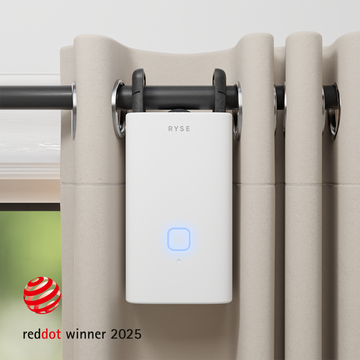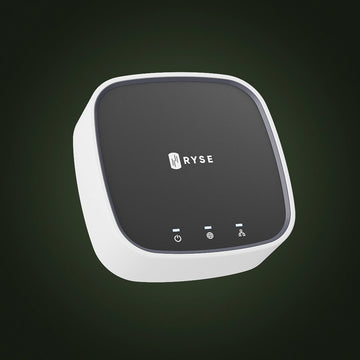Ever wake up with a pounding head even after what seemed like a full night's rest? Or find yourself battling an afternoon headache that seems to come out of nowhere? It might not just be stress or screen time, it could be your sleep working against you.
Many people don’t realize how tightly connected sleep and pain are. A restless night can lower your pain threshold, ramp up inflammation, and trigger chemical imbalances in the brain, all of which make you more prone to headaches the next day.
The good news? With the right environment and smart routines, many sleep-related headaches are preventable.
In this post, we’ll break down the science behind why sleep deprivation can cause headaches and show you how to use smart bedroom tools and better habits to wake up clearer, calmer, and pain-free.
How Lack of Sleep Triggers Headaches
When you miss out on quality sleep, especially deep or REM stages, your body doesn’t just feel tired. It starts to misfire in ways that affect your nervous system, hormones, and immune response.
Key triggers include:
-
Hormonal imbalances: Sleep loss disrupts cortisol (stress) and serotonin (mood/pain regulation), both linked to headache intensity.
-
Increased inflammation: Chronic sleep debt raises inflammatory markers in the body, which can sensitize pain receptors.
-
Sensory overload: Without proper rest, your brain struggles to filter and process stimuli light, noise, even mild tension, leading to more frequent headaches.
Research shows that even partial sleep deprivation can increase migraine risk and tension-type headaches in otherwise healthy individuals.
How to Prevent Sleep-Related Headaches with Smart Tools
If sleep is part of the problem, it should be part of the solution. Start by improving the consistency and quality of your sleep environment.
1. Create a Calm, Dark Sleep Space
Your body relies on darkness to signal melatonin production. Ambient light even from streetlamps or phone screens can disrupt this cycle.
Smart Fix:
Use RYSE SmartShades to automatically block light at night and in the early morning.
Program them to close an hour before bed and open gently at wake-up.
Pair with warm lighting and screen limits to wind down visually.
2. Regulate Bedroom Temperature
Sleeping in a room that’s too warm or cold can prevent your body from reaching deep, restorative stages leaving you more vulnerable to headaches.
Smart Fix:
-
Use a smart thermostat to maintain 60–67°F (15–19°C) at night.
-
Close blinds during hot afternoons to reduce room heat naturally.
3. Control Noise Disturbances
Even light background noise can prevent your brain from fully relaxing, especially if you're prone to stress-related headaches.
Smart Fix:
-
Use white noise machines, sleep playlists, or ambient soundscapes to block jarring noise.
-
Smart speakers or routines can activate these sounds automatically at bedtime.
Strengthen Your Sleep Routine
Consistency matters as much as the tools. Here’s how to reinforce a sleep schedule that prevents tension and stress buildup:
-
Go to bed and wake up at the same time every day, even on weekends
-
Avoid screens and caffeine late in the evening
-
Use a nightly wind-down routine, stretching, journaling, reading
-
Limit alcohol, which disrupts deep sleep and increases dehydration
Over time, this rhythm stabilizes your nervous system, making both sleep and mornings easier.
If you’re frequently waking up foggy, irritable, or in pain, your sleep may be to blame.
The connection between sleep deprivation and headaches is real, but also reversible. By upgrading your sleep environment with smart tools like RYSE SmartShades, temperature and noise control, and better sleep hygiene, you can dramatically reduce how often head pain interrupts your day. Because a headache-free morning starts with smarter nights.
Frequently Asked Questions (FAQs)
1. Can sleeping too little trigger migraines?
Yes. Lack of sleep can increase the frequency and intensity of migraines by disrupting hormone levels and increasing brain sensitivity to stimuli.
2. Does sleeping too much also cause headaches?
It can. Oversleeping can lead to sleep inertia and circadian disruption, which may also trigger headaches, especially if paired with poor sleep quality.
3. Will smart shades really help prevent headaches?
Absolutely. By reducing early morning glare and evening light pollution, smart shades like RYSE help your brain transition more smoothly between sleep stages, improving quality and reducing headache triggers.
4. Is it okay to use sound machines every night?
Yes in fact, consistent soundscapes can help your brain associate those sounds with sleep, creating a more reliable and relaxing wind-down process.
5. How soon will I see a difference if I improve my sleep setup?
Many people notice improvements within a week, especially if they stick to a consistent bedtime and minimize sleep disruptors like light and noise.







